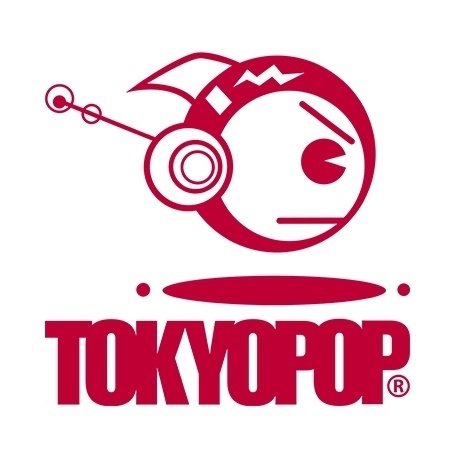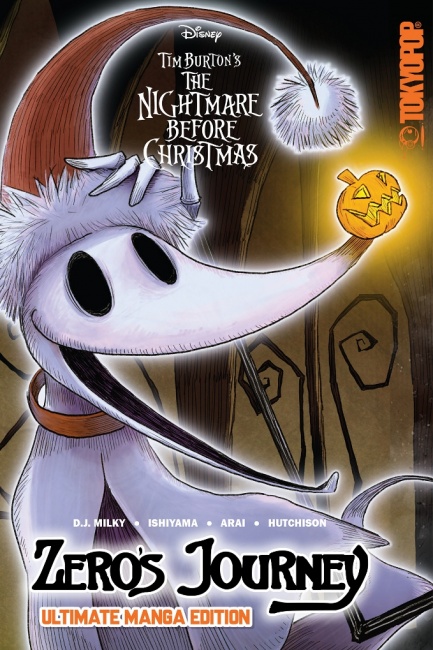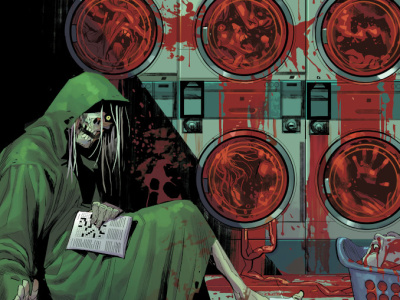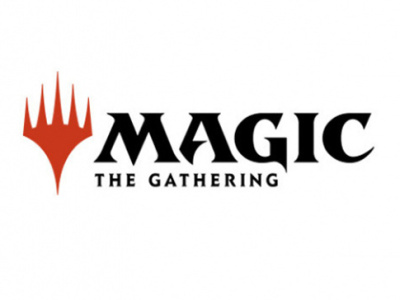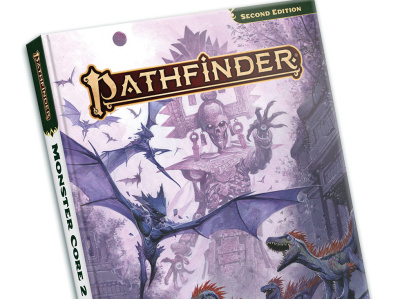We reached out to talk to Stu Levy of Tokyopop for Manga Week, and on the occasion of ICv2’s 20th anniversary. Tokyopop was one of a handful of companies that supported us in our first year (see "20 Years Ago Today"), and Levy has a long history in the U.S. manga business. In this interview, Levy shares his views of the current manga market, why manga should be bigger, the growing competition between manga and webtoons, and what’s coming next.
ICv2: Let's start out with your view of the current manga market. Where do you see things today?
Stu Levy: First of all, half the market is controlled by one company, and I don't think that's a healthy thing, nothing against them personally. Obviously, there's a reason why they have such control. They're owned by two of the four biggest publishers in Japan and, of course, the number one publisher in Japan, so they have access to incredible titles. They've been in the business for a super long time, and they've weathered the ups and downs and they've learned, and they've put that learning to use. In that sense, they're a legitimate company. They earned their market share as opposed to unfairly received it. However, in general, it's better for the market if there's more competition, there's more players, and they're more innovative.
You know me, I'm always a contrarian. The comment that, "The manga market is back, and it's getting close to its heyday, it's great because it's been growing," I don't necessarily agree with that. It's great to see that books sell, still, especially print books, which was not something I expected back when the first wave [of manga sales in the 00s] was crashing. I felt like print was over at the time, and I'm pleased to see that people still appreciate print and young people appreciate it.
I do also, at the same time, believe that innovation in the manga market and in the comics market overall, and publishing overall, is still quite stunted. I think that we’re all kind of doing the same thing, to be honest. We print books. We sell them to Barnes & Noble, and Amazon, and BAM!, and Indigo, and comic book shops, and indie book shops. A little bit less are returned than in the old days because people are not buying as many upfront, but the business model's the same.
I don't necessarily think it needs to be the same. I think that it needs to evolve, and I think that more people should be reading manga. Anime has grown significantly; and I don't see that manga is growing at the same pace as anime; and I think that has to change.
Talk a little bit about manga in the COVID era. How do you see what's been happening in the last year?
First, I would say that I have a lot of gratitude because our industry and our industry segment, compared to others, have been relatively unharmed. There's been pain, at least from a publisher point of view. I know from retailer point of view, it's been super, super hard. My heart goes out to the retailers.
From a publisher point of view, we've been lucky. Amazon, frankly, has picked up a lot of the slack, which, unfortunately, has been at the expense of independent shops, which, again, is really a shame. I hope that all of these shops can recover and that the government is willing to support them because they're critical to the business.
As a publisher, we have had our sales. We've had some pretty significant dips in quarter two and quarter three. Quarter four was great. A lot of shops were open again, and Amazon, like I said, picked up a lot of the slack.
It was frustrating in quarter two and early quarter three; in particular, Diamond was not able to ship any new product at all, which hurt us, compared to Random House, Simon & Schuster, and some of these companies that were able to ship new releases. We recovered from that, and I'm extremely thankful for that. I'm also very thankful that fans have stuck by the category and still buy manga. I'm glad I'm not in the cruise ship business, and my heart goes out to the retailers.
Going out to the longer view, what makes you think that manga isn't growing at the same pace as anime?
Because I think that the exposure of anime to a wide range of people right now, mainly courtesy of the streaming platforms, is significant. I think more people have watched anime now, outside of Japan, than ever, and I don't think that's necessarily the case with manga. Maybe, but I frankly think piracy is still a huge issue for manga.
I think a lot of people, young people in particular, are reading webtoons and the webtoon‑type platforms, like Tapas, etc. I think that access to content, whether free or for one monthly fee (Kindle Unlimited, things like that), those types of business models are the way that a lot of people are now experiencing entertainment, consuming content.
Trying to get someone to buy one book and then, if they like it, buy the next in the series and the next in the series and, if they like that series, spend their hard‑earned money on another series, and do that is a big challenge. Every single sale we make is a blessing, but at the end of the day, it's going to be 5,000 people or 10,000 people, if we do very well, or 2,000 people, or if you're VIZ, maybe 50,000 people.
It's not going to be four million people. It just doesn't happen with manga or comics in general. When you compare just the sheer number of people who watch anime versus those that read manga, the piracy question being the red herring, from a legitimate consumption point of view, it's not even close.
I was going to ask what you thought the biggest change in the last 20 years in the manga business had been, but it sounds like you don't think there's been that much change at all.
I don't. I think there's been incremental change. There's been some iterations. I do believe that buying patterns are more conservative, in general, in publishing, and manga's part of that, of course. We just don't get the big up‑front buys. I don't think anyone does. Instead, if a title is selling well, there'll be re‑orders, which I think is healthy, frankly.
I'm still very concerned, even though manga is not the core part of their business, I think that the comic book shops and that non‑returnable model and the way that they have to do their business puts a lot of risk on the retailer there.
I think companies like BOOM!, from what I've seen, are very retailer‑friendly in that market, so I think that's good, but from what I see, the market is not that different than it was back in the day.
One big change has been the growth of Amazon as a key player in the book business. Is that a good thing or a bad thing for the manga business?
It's certainly a double‑edged sword. When we were ending our first run, when things were getting very tough, Amazon was already 20 to 30 percent of our business back then. It's not like it just came around since we had to stop publishing for a while. It was already becoming a behemoth, and since then, it's only become bigger and bigger. There are some stats I've heard that during COVID, for the publishing industry, it was 80 percent of the business, which clearly is not healthy.
The advantage you get from Amazon is that because the efficiencies are there and the data is there, even though we might not have access to all the data, we can use Amazon tools to know a decent amount about our business. If we want to be smart about it, that can make our business more efficient.
The bad side is, again, competition. It's just better to have competition, whether it's at the publisher level or retailer level.
It sounds like you are surprised that digital hasn't taken a bigger share. Why do you think that is?
The digital model in publishing has not come into its own yet. I think that, eventually, it will. I'm still very bullish on digital.
The fact that, as we were talking about earlier, there's a number of people that love print is a great thing. I think that print will become (it's already starting to become this way) more and more a collector's item, more of something you're proud to own, more of something that, when you really love a series, you want to give back to the creators by supporting their print versions; but discovery, exploration, and day‑to‑day encounters with written content, whether that's graphic novels, manga, or published material overall, will become more and more digital.
Compared to, say, news or other aspects of written content, the reason why books, in general, have not been completely digitized is because of the business model challenges that still exist. An ebook just isn't that cheap. When you compare that to video and music… I have a Spotify subscription that I've had for a number of years that I absolutely love. It still blows my mind as a music fan the type of music I can access for $10 a month.
But the growth of Spotify has crashed the revenue for creators versus the previous model.
That is actually a fallacy. I don't know if you've heard of the guy, Bob Lefsetz, a very well‑known music analyst and journalist. He talks about this a lot. Back in the day when you sold a CD for $16, the only people that really could make money were people who sold a decent amount of CDs. A challenged artist could not make money. Now, you're not dependent on a record label. If you put your product out there via Spotify and streamers and it does well, you end up having a lot of control over not only your revenue stream but your business, your opportunities in music.
There's tons of music artists that don't make money, but there were then too. It's very difficult in content, overall, whether you're a filmmaker, a musician, or a writer, to do that professionally and pay your bills. We've all aspired to be in creative industries, which is why we're in this business, but it's certainly not easy. It's a privilege to be in the business.
I'm sure there's some musicians that probably hate me to say this, but I've read analyses that show that streaming has actually been better for the musician, overall, than the CD business.
That's a great segue into the question of where do you think the manga business is going? Where would you like to see it go?
What I find interesting is manga versus webtoon. I still think American comics, indie, graphic novels, mid‑grade, all that stuff is fascinating. There's a certain kind of influence of all sequential art‑related segments, but within the world of manga, the most interesting thing to me is manga versus webtoon.
You have, first of all, the Asia‑based competition between Korea, China, and Japan, Japan's dominance for so long over this form of art, and the significant growth of Korea and China in these areas, utilizing digital technologies to grow. Then, of course, how that's expanding overseas. I cannot overstate the importance of webtoons internationally as a platform. It's significant. I think there's a lot of stuff they're not doing that they could do, and maybe they will one day.
They're the closest thing to mass exposure of sequential art that we've had in decades, I would say. Manga has to learn to compete with that, has to be more open‑minded. The manga publishers in Japan, they've got this incredibly tight control and hold on their content. They don't let it out. They don't let it go. They don't let young people use their own creativity to remix their content. They don't let people spread it by encouraging legal ways to do it on the Internet. What happens is they try to control everything in a very strict fashion.
I think it's generally a mentality. I don't want to just vent, but there's a point to this. We, for instance, with some of our licensors, have to take the back cover copy that we prepare on the book, translate it into Japanese, send it to them so they can read the back cover copy in English and in Japanese to see that they approve that.
Every now and then, they come back and they say, "We don't like this English word you used." We have to explain to them the nuance of what that word is. Think about the time that's going back and forth in that, and we're already a year, two years, whoever knows, past when it was published in Japan and when the pirated version came out.
They're so paranoid about somebody being exposed to the content in a negative way, they understand but they don't politically do anything about all these people that have already read it for free and ripped them off. There's a real challenge.
And, the manga market in Japan is shrinking. It's not growing. The overseas market is getting bigger, so there's a shift in the value of the overseas market, but then you've got the Korean webtoon players, and probably pretty soon the Chinese, growing much faster than the manga players, other than Shueisha, have grown.
It's frustrating as a manga supporter, fan, and industry person for so many years to see that, because I think that the creativity and the talent level in Japan is still world‑class. I would like to see a bit more open‑mindedness, but Japan only changes when outside pressure comes to them. I think the outside pressure of webtoon is starting to affect them; I see that in the conversations that I have with them.
Shifting over to Tokyopop, what have been some of your successes over the last year? What are you looking forward to this year?
We have an understanding of our place in the market, which is we are boutique, we are niche. It's not like the old days of Tokyopop, where we have access to a huge range of content from Japan that we can bring out and we can lead the way in the U.S. Those days are long gone, and we understand that. I have no intention of trying to duplicate them. Well, if I had a way to, maybe I would, but there's no way.
What we focus on is what works for us and what our editor is passionate about. Our editors care a lot about previously unheard voices. I know, in a way, in publishing, it's an overall trend, but our editors are right in sync with that trend of disenfranchised voices, representing a wide range of not only readers but creators, and doing that while satisfying manga fans.
We have a romance line called Love x Love, which has really been our success story. Love x Love has done great for us. Our editors specialize in it. It's inclusive romance. Basically, the tagline is, "Love who you love," whether that's an LGBTQ‑type romance, whether that's more of a traditional romance. It's done very well. We have a title called Dekoboko Sugar Days, which has just been a beast. We're literally on the fourth print run right now, and it's been out for just a bit more than a year. That's happened on a number of our books, frankly, so we're very pleased.
We do have, as you know, the Disney brand, which, of course, we re‑launched the business with. I think we've come to a nice rhythm with Disney. There's certain titles, like Nightmare Before Christmas, Stitch, and some of the princesses' Descendants that are our sweet spot. We're putting out more of those books, and they do well.
This year, we have Stitch and the Samurai coming out, where Stitch warps into a jidaigeki, an old samurai epic tale. Suddenly, there's Stitch advising this Samurai, and it's really clever and fun.
We have some video game brands that we're doing. We've got an original graphic novel series that is based on the upcoming Netflix anime called Resident Evil ‑‑ Infinite Darkness. We're doing an original manga story in that world. We have another big video game series that we have not publicly announced yet, and looks like it will be part of the Free Comic Book Day line. When that announcement comes soon, we'll be able to talk more about that. We do continue to do some well‑known brands.
For more on Tokyopop’s upcoming releases, see "Tokyopop: Boys Love, Resident Evil, and Disney Manga."
For more great Manga Week content, see "ICv2 Manga Week 2021."
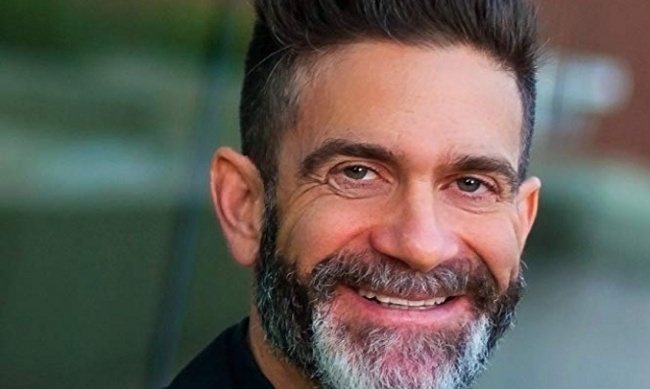
Why Manga Should Be Bigger, Manga vs. Webtoon, The Past, the Future
Posted by Milton Griepp on March 4, 2021 @ 3:00 am CT
MORE COMICS
From Image Comics
August 20, 2025
Check out the preview for Creepshow Vol. 4 #1, coming in September from Image Comics.
For 'Ultimate Endgame' #1
August 20, 2025
Marvel Comics has revealed that it will use a blind bag program to promote the first issue of Ultimate Endgame, the five-issue event series.
MORE NEWS
Constructed Formats are in a Lull, Time to Brew Up Better In-Store Events
August 20, 2025
Constructed formats are losing their luster, time to try a Halloween Cube.
Expands on First Core Bestiary Rulebook; Adds Eight New Dragons
August 20, 2025
Paizo, Inc. will release Pathfinder Monster Core 2 , for Pathfinder 2E RPG , into retail.



